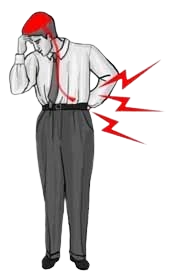Alternative View of RSI
Unfortunately, the orthodox approach for treating RSI leaves many sufferers without any improvements and no real solutions. Furthermore, anomalous symptoms reported by sufferers, inconsistent with the underlying diagnosed musculoskeletal disorder, imply that the orthodox medical view is not the complete story of RSI.
For example, many sufferers report that performing strenuous tasks similar to typing (like playing a piano) causes no pain. As soon as they begin type or move a mouse the pain suddenly commences. If the cause was entirely "mechanical" in nature,why doesn't the pain occur consistently whether someone types on a keyboard or plays the piano?
A person with a broken leg feels the pain whether walking, running or jumping. Who with a broken leg feels pain only when walking but not when running or jumping?
To make things worse, contradicting advice and diagnosis given by various professionals can be profound in nature, providing only confusion to many. For example, it is very common for doctors to diagnose Carpal Tunnel Syndrome and prescribe various solutions which don't work. Discontent with the treatment, a sufferer might approach another doctor who will give a totally different diagnosis and who claims that CTS is rare, over diagnosed and not the underlying cause.
Many sufferers will go through the orthodox medical mill and come out with not only the same sore hands they walked in with, but with a sore wallet too.
The difficulty in coming to grips with the perplexing syndrome has given momentum to various alternative views of RSI. The unorthodox view basically hypothesizes that RSI pain is psychosomatic in nature. The catalyst for pain stems from an unconscious fear and anger leading to stress and anxiety.
Whilst this view is less quantitive than the orthodox view, many sufferers claim major improvements and sometimes full recoveries by adopting various therapies prescribed by this approach.

